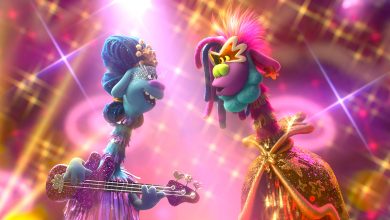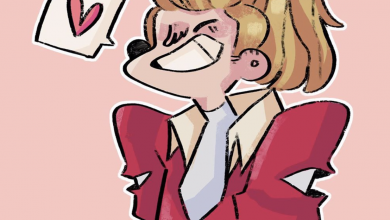A Mother in Baltimore…

(CN: Violence against a teen)
It’s Thursday April 30th, 2015, and the city of Baltimore is still reeling from the events surrounding the suspicious death of 25 year old African American Freddie Gray whilst in the custody of the Baltimore Police Department allegedly for possession of a switchblade. According to news sources (and reflected on Wikipedia) Gray was arrested on April 12th, fell into a coma whilst being transported and was taken to a trauma center where he was pronounced dead on April 19th, apparently from severe damage to his spinal cord and larynx. In laymans terms, a broken neck. Whilst tens of thousands of protesters had marched peacefully since the event, the situation turned violent after Grays’ funeral on the 25th, leading to the all too common clashes we have seen between justifiably angry, disenfranchised urban populations and often belligerent, sometimes merely hapless urban police forces tasked with controlling them. Better writers and reporters than I can provide more detailed coverage of the background behind this tragic week in Baltimore, native son Ta-Nehisi Coates provides excellent perspective at the Atlantic.
The story the brought me to the keyboard this morning was the latest viral video to grace our social media landscape in the aftermath of the riots and protests in Baltimore. On Tuesday, video surfaced of an African American woman violently berating teenage her son, slapping him about the head and shoulders, tearing what appears a ski mask from his head, all while loudly cursing and driving the young man away from the crowd of protesters who were allegedly throwing stones at police officers. The video quickly went viral, inspiring the hashtag #Momoftheyear on Twitter and popping up on my Facebook feed with an approving chorus of “If only more mom’s did this we wouldn’t be having this problem” from largely white middle class conservative parents I know. You can view the video here. Here’s a still courtesy of CBS News. As regular Grounded Parents reader would know, we are highly skeptical of corporal punishment of any kind and consider it to be poor parenting practice. But what is worse in my opinion was the way that this woman and her son were almost immediately co opted and repackaged to fit a narrative of young black men who are out of control and the necessity of violent intervention, either by their parents, or if they fail in their duty the state. This family was practically paraded across the social media landscape as a defacto justification for treating young men with violent correction, a justification that leads quite unironically to the police forces treatment of people like Freddie Gray.
As regular Grounded Parents reader would know, we are highly skeptical of corporal punishment of any kind and consider it to be poor parenting practice. But what is worse in my opinion was the way that this woman and her son were almost immediately co opted and repackaged to fit a narrative of young black men who are out of control and the necessity of violent intervention, either by their parents, or if they fail in their duty the state. This family was practically paraded across the social media landscape as a defacto justification for treating young men with violent correction, a justification that leads quite unironically to the police forces treatment of people like Freddie Gray.
Yesterday the mom in the video, Toya Graham was interviewed by CBS News (and various other outlets since,) revealing her side of the story.
“He gave me eye contact. And at that point, you know, not even thinking about cameras or anything like that. That’s my only son and at the end of the day I don’t want him to be a Freddie Gray,”
Baltimore Police Commissioner Anthony Batts echoed the sentiment popular amongst “respectable” commenters,
“I wish I had more parents who took charge of their kids tonight,” he said, according to CBS Baltimore.
Others have pushed back against both narratives today however, and I’d like to do what little I can to amplify them here. At the Washington Post, Stacey Graham, a senior enterprise reporter for the Chronicle of Higher Education, and an adjunct professor of American history at American University wrote “Why is America Celebrating the Beating of a Black Child”. In response to Ms. Graham’s quote above she writes,
In other words, Graham’s message to America is: I will teach my black son not to resist white supremacy so he can live.
…
The problem is that Graham’s actions do not assure that her son, and legions like him, will survive childhood. Recall the uncle who in 2011 posted a video recording of himself beating his teenage nephew for posting gang messages on Facebook. Acting out of love and fear for his life, he whipped the teen, but months later he was found dead anyway.
Praising Graham distracts from a hard truth: It doesn’t matter how black children behave – whether they throw rocks at the police, burn a CVS, join gangs, walk home from the store with candy in their pocket, listen to rap music in a car with friends, play with a toy gun in a park, or simply make eye contact with a police officer – they risk being killed and blamed for their own deaths because black youths are rarely viewed as innocent or worthy of protection.
At The Huffington Post, Julia Craven writes “Dear White America: Toya Graham is Not Your Hero“,
On a very basic level, the worship of Graham is built on a misunderstanding of her motivation. Many in the media have presumed she was furious at her son for taking part in a riot, and dished out the blows that police and pundits think young black men need to get them back in line. But that’s not what she says drove her.
Young black men, like Graham’s son, are 21 times more likely than young white men to be shot dead by police. Graham was scared for her child.
…
Knowing that Graham’s primary motivation was to keep her son safe from police violence, would so many white observers have been as sympathetic to the beating she laid out? “Let’s be honest: many white folks are reflexive critics of the greater frequency of corporal punishment in the black community. Witness the media horror at Minnesota Vikings running back Adrian Peterson beating his young son,” wrote Joan Walsh in Salon. “If Graham beat her child like that in the aisles of CVS, you can be sure somebody would call CPS.”
…
The police commissioner, for one, seems to be forgetting a key point as he celebrates the hero mom: She was protecting her son from him.
Fellow GP Chris Brecheen wrote an excellent piece at his blog this week “Controlling the Narrative: A Case Study Within Baltimore” that I recommend everyone read. Because that is what we see here, the struggle between the powers that be and the populace for control over the narrative of this story, for control of what story goes viral, how it is read to the public, and how it is remembered in the history books.
As a parent I can empathize with Toya Graham, but as a white parent I can only understand her plight from a distance. My children will likely never be treated as Freddie Gray was, and I will never see the need to treat them the way she felt she had to treat her son to keep him safe from a fate akin to Grays. As an advocate for evidence based and nonviolent parenting I cannot condone the physical nature of her intervention, but I can forgive Toya Graham for her fear because that fear is rooted in evidence, in the long line of broken black bodies that our society seems uninterested in protecting from a system that disenfranchises and dehumanises them. I don’t want anyone to be the next Freddie Gray, but using Toya Graham as a prop to further the narrative that young black men can only be controlled by violence is part of the problem, not part of the solution.
Featured Image Credit: Picture of Toya Graham from CNN.com





Thank you so much for writing this. The way this has been presented has been awful.
Thank you for reading!